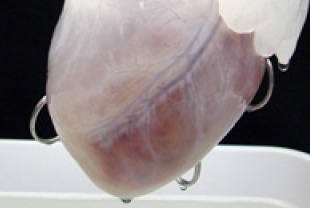This is another episode of the six-part NOVA scienceNOW series about the big questions facing humankind. Although we all know that nothing lasts forever (certainly many products have a built-in obsolescence), we still have dreams of something that is built to last. Irv Gordon, retired science teacher, has a 1966 Volvo that he bought 40 years ago; it has now gone 2.7 million miles — setting an all-time record. The owner has taken good care of the car with rigid maintenance and the replacement of worn-out parts.
Meanwhile, at the University of Minnesota, Doris Taylor and her colleagues have been learning how to grow body parts. She believes that it won't be long before people can get custom-made body parts such as hearts, lungs, kidneys, and livers. We see some of the research that is making this advancement a real possibility.
More and more men and women are making it to 90 years of age and still keeping fit and staying healthy. Scientists have discovered a longevity gene called Foxo which could be the reason why some people seem to have discovered the legendary fountain of youth.
Jason Leigh, a computer scientist, is hard at work on avatar technology which will make it possible some day to pass on your ideas, ideals, and emotions to others after you are dead.
The final segment of Can We Live Forever? examines scientific research to understand the ramifications of animal hibernation on reviving people who have seemingly died. Do all of these developments seem far-fetched to you? There are many ethical dimensions to these scientific efforts which are not discussed. But as usual, NOVA scienceNOW does manage to be thought-provoking and accessible in its presentation of complex matters.



